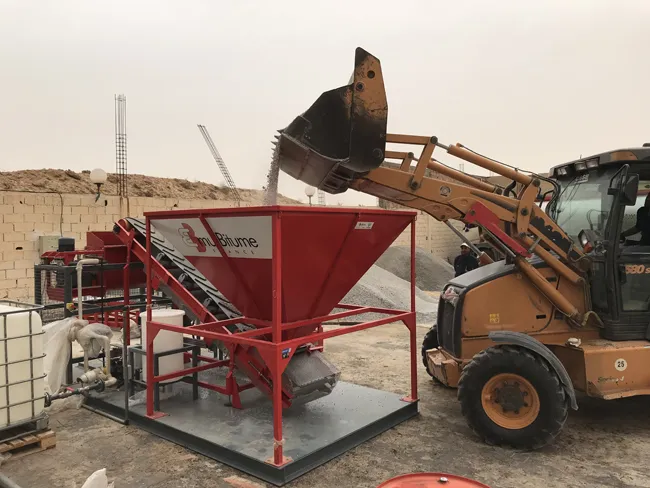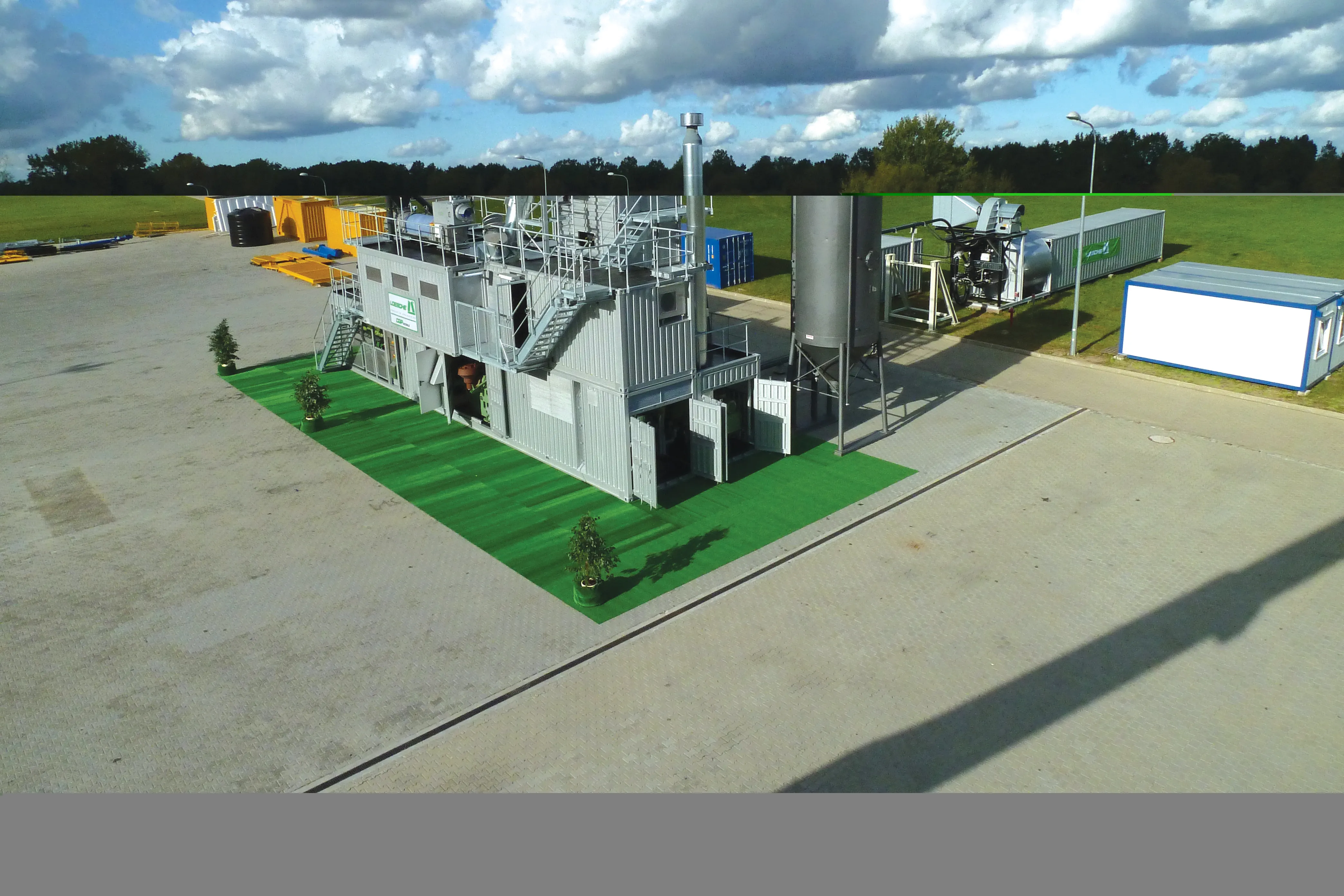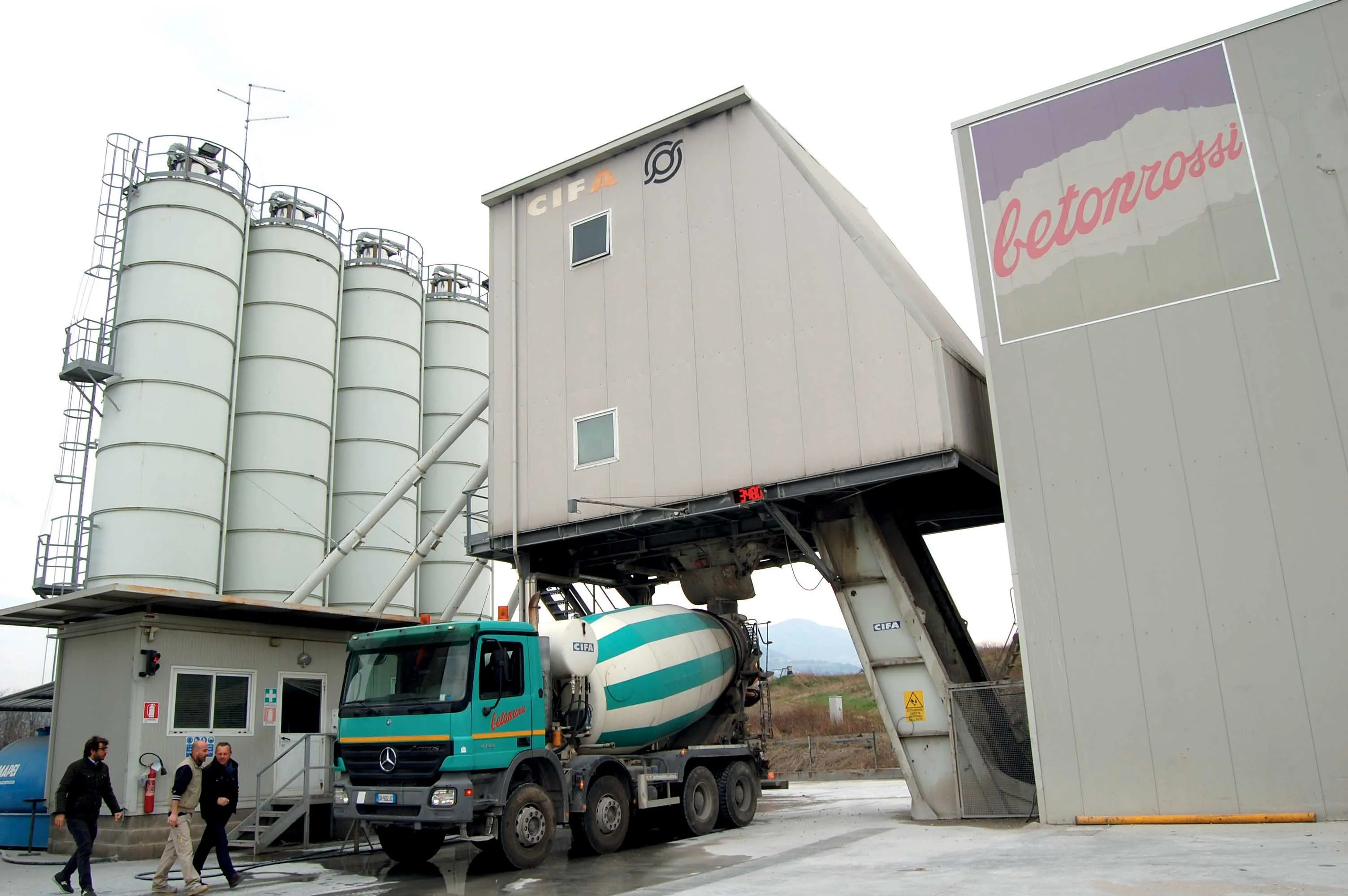
The fully automatic machine is a complete production system including production of cold mix and packing system for bags and buckets. A PLC – programmable logic controller - monitors the system and makes decisions based upon a custom programme to control output.
Emulbitume assembled the unit and provided initial technical assistance including start-up for its customer, Souf Bitume, near Oued Souf.
Emulbitume said that the system can be stored for a long time, more than six months in some cases, before being used.
The machine produces 2 tonnes per hour of cold mix and its operating cycle is given by the capacity of the mixer which is 100kg. Just after production, the cold mix is sent to the packing system with a screw and a weighing system enable to fill-in the bags and the drums. Total production rate is 80 bags per hour, suitable for efficient road maintenance.
For this special application, Emulbitume can also provide the bags which are designed for hard handling and road field.
Emulbitume noted that, according to data collected after industrial-scale production began, the machine is running perfectly and the final product is of a very good quality.









